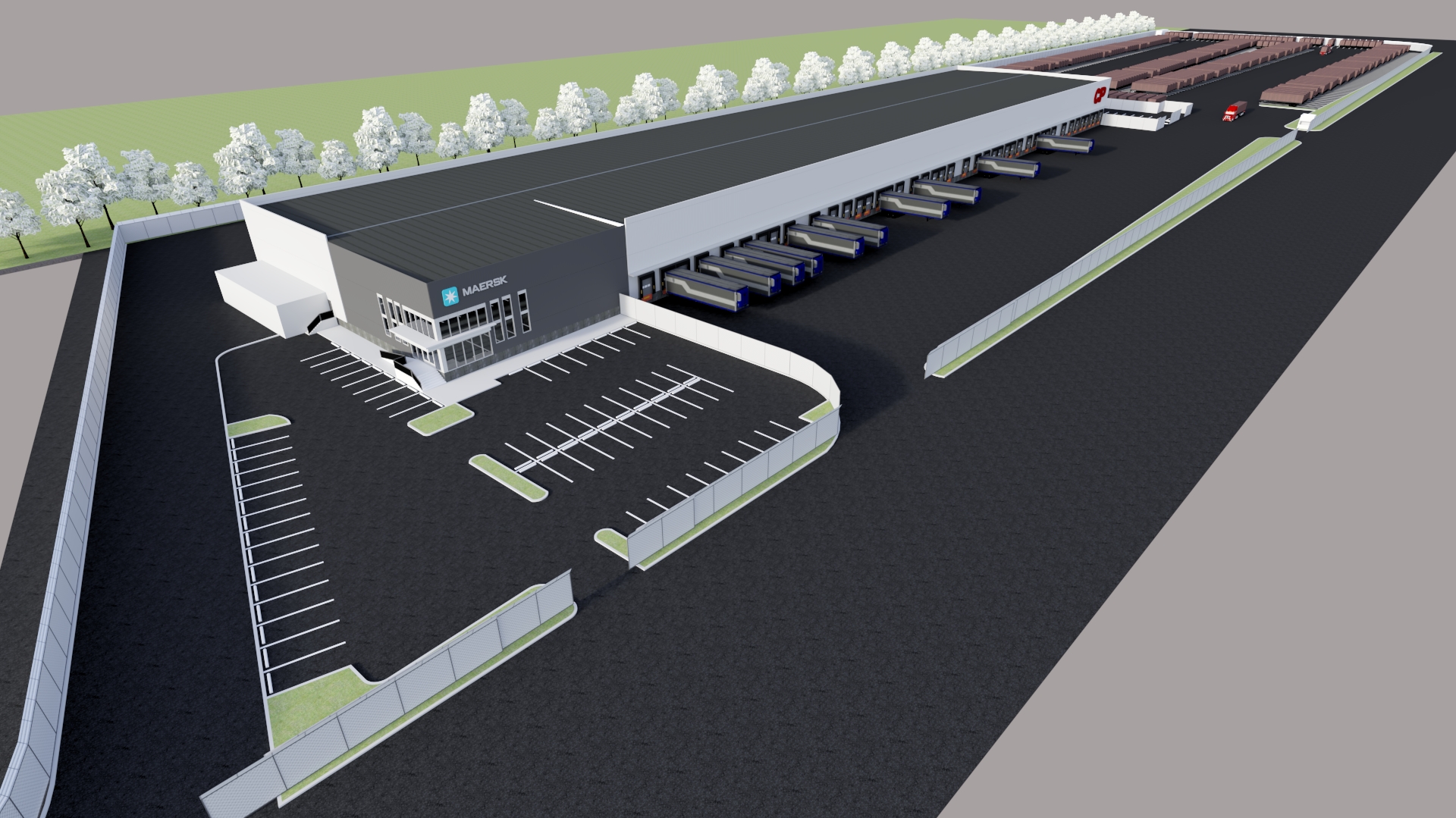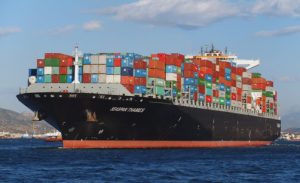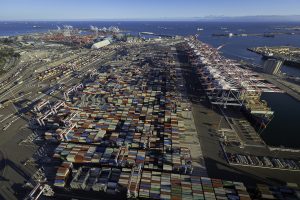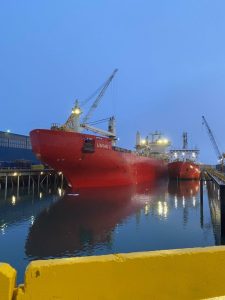Calgary – Canadian Pacific Railway Limited and Maersk, the world’s biggest shipping line, have reached an agreement to build and operate a world-class transload and distribution facility in Vancouver to expand CP’s and Maersk Canada’s supply chain options for customers. To be operational in 2021, the CP transload facility will be an expansion of CP’s existing Vancouver Intermodal Facility and thus will benefit from turnkey rail infrastructure.
The transload facility (per artist rendering) is designed to apply Maersk’s global integrator of container logistics strategy and will offer customers access to a multi-commodity transload facility that will rely on the substantial use of rail instead of truck in the Vancouver market, as CP will shuttle containers to and from the ocean terminals via rail.
Maersk’s ambition to establish a sustainable supply chain aligns with CP’s initiatives to fight climate change. This compelling combination will provide an effective and efficient long-term intermodal solution for customers, stated a joint press release.
“CP’s unique landholdings in Vancouver enable us to bring to market a first-of-its-kind transload facility that creates tremendous opportunity for sustainable growth,” said CP’s President and CEO Keith Creel. “Together with Maersk, the global shipping leader, we will transform intermodal transportation in North America.”
Omar Shamsie, President of Maersk Canada said, “This agreement installs more agile supply chain options and capacity to and from Vancouver for our North American customers. Marketplace fluctuations, e-commerce demands and omnichannel fulfillment are testing every company – so this integrated logistics solution with CP will clearly elevate supply chain performance.”
Vancouver warehouse space has been tight in 2020 – which, combined with Vancouver ports experiencing high utilizations has placed pressure on supply chain performance. “So we applied our global integrator strategy to simplify the current situation and create more end-to-end supply chain solutions by reducing multi-modal handoffs. We can now offer more responsiveness to the pace of business by giving supply chain leaders more control of order timing/fulfillment through inland routing flexibility, better velocity gained from one day savings of rail versus truck and cost savings through seamless transload operations into domestic 53’ trailers. We feel this is quite compelling to lower their year-on-year cost goals while creating a more sustainable supply chain with less truck emissions,” added Mr. Shamsie.





